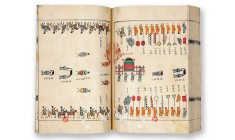Collectors on illicit collecting: Higher loyalties and other techniques of neutralization in the unlawful collecting of rare and precious orchids and antiquities
Mackenzie, S. & Yates, D. (2016) ‘Collectors on illicit collecting: Higher loyalties and other techniques of neutralization in the unlawful collecting of rare and precious orchids and antiquities’, Theoretical Criminology, 20(3), pp. 340–357.
This paper has been made available via Open Access (CC-BY) and can also be found on the Theoretical Criminology website.
Trafficking natural objects and trafficking cultural objects have been treated separately both in regulatory policy and in criminological discussion. The former is generally taken to be ‘wildlife crime’ while the latter has come to be considered under the auspices of a debate on ‘illicit art and antiquities’. In this article we study the narrative discourse of high-end collectors of orchids and antiquities. The illicit parts of these global trades are subject to this analytical divide between wildlife trafficking and art trafficking, and this has resulted in quite different regulatory structures for each of these markets. However, the trafficking routines, the types and levels of harm involved, and the supply–demand dynamics in the trafficking of orchids and antiquities are actually quite similar, and in this study we find those structural similarities reflected in substantial common ground in the way collectors talk about their role in each market. Collectors of rare and precious orchids and antiquities valorize their participation in markets that are known to be in quite considerable degree illicit, appealing to ‘higher loyalties’ such as preservation, appreciation of aesthetic beauty and cultural edification. These higher loyalties, along with other techniques of neutralization, deplete the force of law as a guide to appropriate action. We propose that the appeal to higher loyalties is difficult to categorize as a technique of neutralization in this study as it appears to be a motivational explanation for the collectors involved. The other classic techniques of neutralization are deflective, guilt and critique reducing narrative mechanisms, while higher loyalties drives illicit behaviour in collecting markets for orchids and antiquities in ways that go significantly beyond the normal definition of neutralization.
